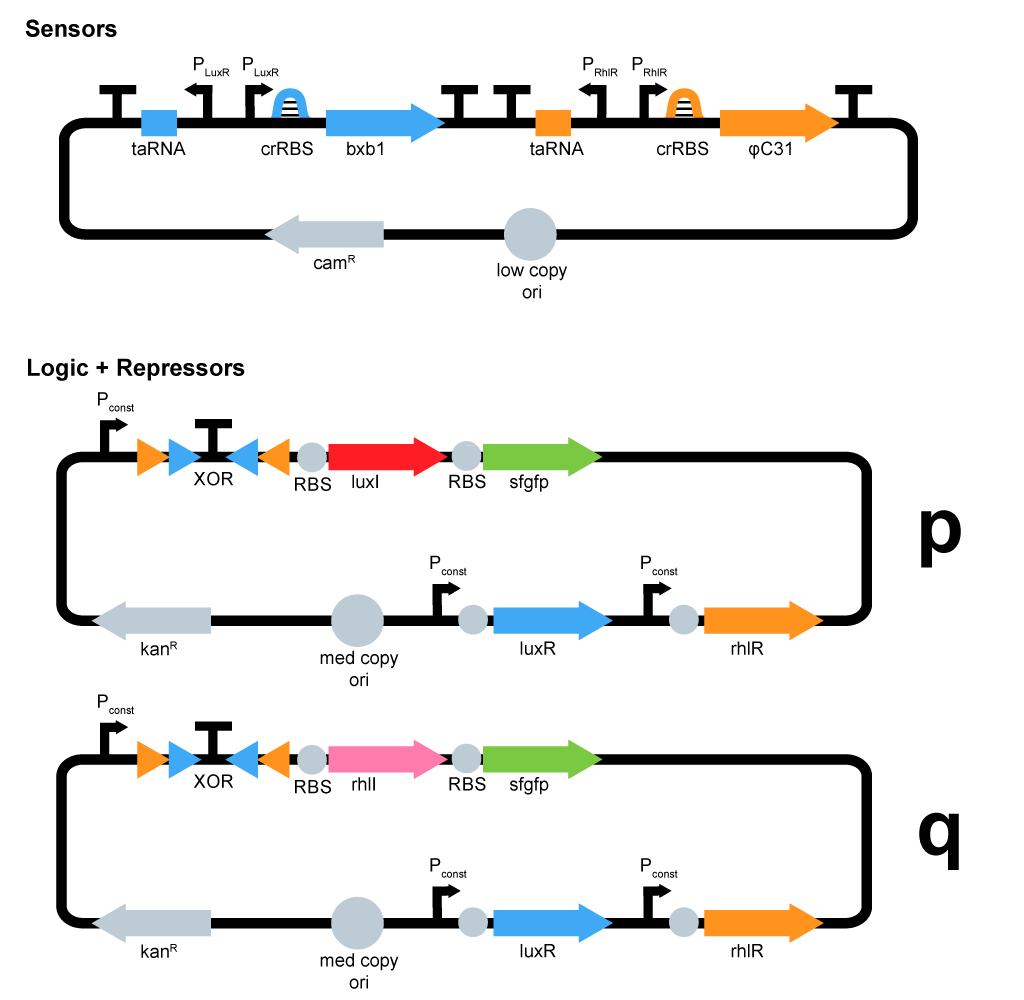Team:ETH Zurich/labblog/20140611meet
From 2014.igem.org
(Difference between revisions)
(→Wednesday, June 11th) |
(→Wednesday, June 11th) |
||
| Line 8: | Line 8: | ||
[[File:ETH Zurich Plasmids.png|600px]] | [[File:ETH Zurich Plasmids.png|600px]] | ||
| - | ΦC31 and Bxb1 are integrases. LuxR an RhlR are quorum sensing molecules. Type p colonies produce AHL by expressing the enzyme LuxI. Type q colonies produce Rhl by expressing the enzyme RhlI. In fact, we don't know yet which quorum sensing systems we will use. We will have to perform cross-talk experimetns in order to choose the ones that are the most orthogonal. | + | ΦC31 and Bxb1 are integrases. LuxR an RhlR are quorum sensing molecules. A riboswitch construct is placed around quorum sensing constructs to prevent leakiness of lux and rhl promoters. Type p colonies produce AHL by expressing the enzyme LuxI. Type q colonies produce Rhl by expressing the enzyme RhlI. In fact, we don't know yet which quorum sensing systems we will use. We will have to perform cross-talk experimetns in order to choose the ones that are the most orthogonal. |
* We tried to print our first agar millifluidic chip : we printed it too small, and the printer had resolution problems. | * We tried to print our first agar millifluidic chip : we printed it too small, and the printer had resolution problems. | ||
* We wrote all reactions and found parameters from the literature for our model. | * We wrote all reactions and found parameters from the literature for our model. | ||
Revision as of 14:58, 18 August 2014
Week 3
Wednesday, June 11th
- We started plasmid design :
ΦC31 and Bxb1 are integrases. LuxR an RhlR are quorum sensing molecules. A riboswitch construct is placed around quorum sensing constructs to prevent leakiness of lux and rhl promoters. Type p colonies produce AHL by expressing the enzyme LuxI. Type q colonies produce Rhl by expressing the enzyme RhlI. In fact, we don't know yet which quorum sensing systems we will use. We will have to perform cross-talk experimetns in order to choose the ones that are the most orthogonal.
- We tried to print our first agar millifluidic chip : we printed it too small, and the printer had resolution problems.
- We wrote all reactions and found parameters from the literature for our model.
 "
"
